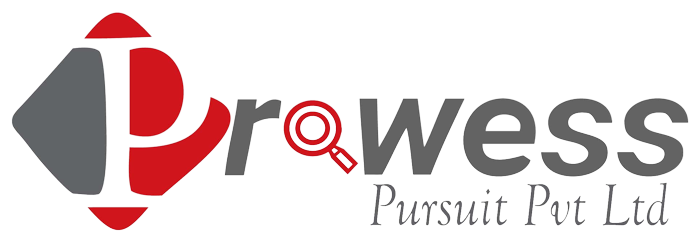
Canada Multiple Entry Visa – Meaning, How To Apply and Requirements
A Canada Multiple Entry Visa, also known as a temporary resident visa or visitor visa, is a valuable document for frequent travelers. Designed for foreign nationals, this visa grants you the flexibility to enter and exit Canada multiple times throughout its validity period, which can be up to 10 years. This makes it ideal for those who plan on visiting Canada regularly for business, leisure, or to see friends and family.
If you’re considering traveling to Canada, you’ll find there are various visa options available to suit your specific needs. Whether your trip is for business meetings or exploring the stunning Canadian landscape, securing the right visa can be a smooth process. However, to ensure a hassle-free experience, it’s important to understand the different Multiple Entry Visa options and choose the one that aligns perfectly with your travel plans.
This blog will equip you with all the essential information about Canada’s Multiple Entry Visa. We’ll delve into the specifics of this visa type, including its benefits and who might qualify. We’ll also guide you through the application process, outlining the required documents and steps involved. Finally, we’ll address some frequently asked questions to ensure you feel confident and prepared when applying for your Canada Multiple Entry Visa.
What is Multiple Entry Visa Canada and Who Needs it?
Multiple entry visas in Canada, also known as temporary resident visas (TRVs) or visitor visas, offer a convenient solution for foreign nationals who require frequent visits to the country. These visas grant you the flexibility to enter and exit Canada multiple times within a validity period that can extend up to 10 years. Here’s a breakdown of who might benefit from a Multiple Entry Visa Canada:
- Frequent Travelers: This visa is ideal for individuals planning regular trips to Canada for tourism, visiting family or friends, or attending ongoing business meetings or conferences.
- Business Visitors: If you’re a non-Canadian citizen or permanent resident traveling to Canada for business purposes (attending meetings, conferences, negotiations) but not working as a temporary foreign worker, a business visitor visa might be required.
- Visa-Exempt Exceptions: While some nationalities enjoy visa-exempt status for short visits, those planning extended stays or multiple entries within a short period will likely need a Multiple Entry Visa.
Important Pointers:
- Non-Canadians Need a Visa: Unless visa-exempt, all non-Canadian citizens and non-permanent residents require a visitor visa to enter Canada.
- Permanent Residents Need Different Documents: Canadian permanent residents cannot apply for visitor visas. They need a Permanent Resident Travel Document (PRTD) for re-entry after traveling abroad.
- Canadian Citizens Don’t Need Visitor Visas: Canadian citizens, including dual citizens, are exempt from visitor visa requirements and can travel freely with a valid Canadian passport.
How To Apply For Multiple Entry Visa Canada?
Applying for a Multiple Entry Visa to Canada is a straightforward process, but thorough preparation is key. Here’s a breakdown of the steps involved:
- Gather Required Documents: The Canadian government outlines the necessary documents on their website. These typically include a completed application form, a valid passport, proof of financial support for your stay, and a travel itinerary.
- Complete the Online Application: Head to the official Government of Canada website (https://services3.cic.gc.ca/) and navigate to the visitor visa application section. Fill out the online application form carefully and accurately. Double-check all information before submitting.
- Pay the Fees: The application process involves two fees: a CAD $100 visa processing fee and a CAD $85 biometric fee. Ensure you pay these fees online using the designated payment method.
- Submit Your Application: Once you’ve completed the form and paid the fees, submit your application electronically. The processing time can vary depending on your country of residence, so factor this in when planning your trip.
- Biometrics Appointment (if applicable): You may be required to attend a biometric appointment to provide fingerprints and a photograph. You’ll receive instructions regarding this step after submitting your application.
- Await Processing: The application processing time can vary, so be patient. You’ll be notified of the decision via email or mail.
- Upon Approval: If your application is successful, you’ll receive a letter of introduction and potentially a temporary resident visa stamped in your passport.
- Travel to Canada: Present your approved visa and supporting documents to the border services officer upon arrival in Canada.
Remember, a Multiple Entry Visa allows you to stay for up to six months per visit within the visa’s validity period, which can be as long as ten years. Make sure your passport remains valid throughout the intended duration of your visits to avoid any complications.
Requirements for Multiple Entry Visa Canada
The Immigration, Refugees and Citizenship Canada (IRCC) actively encourages issuing long-term, multiple-entry visas to genuine travelers seeking entry into Canada. This offers significant advantages for frequent travelers, streamlining the application process for future visits.
While the general application process for a Canada Multiple Entry Visa remains the same as a regular visitor visa, there are additional requirements applicants must fulfill to be eligible for the 10-year visa. Let’s explore these requirements in detail:
- Genuine Purpose of Visit: A crucial aspect of your application is demonstrating a valid reason for visiting Canada. This could be for tourism, reuniting with family or friends, attending special events like weddings, graduations, or business meetings, or participating in conferences. Provide clear and concise documentation to support your intended activities.
- Good Travel History: A clean travel record plays a significant role in your application. This signifies your history of respecting and adhering to immigration laws and regulations of countries you’ve previously visited.
- Proof of Financial Ability: You’ll need to demonstrate sufficient financial resources to support yourself during your stay in Canada. This can include documents like:
- Proof of employment: Salary slips or a letter from your employer confirming your income.
- Bank statements: Recent bank statements showcasing your financial stability.
- Proof of investments or property ownership: This demonstrates additional financial resources.
Providing this documentation assures visa officers that you have the means to support yourself during your visit, alleviating concerns about your financial well-being in Canada.
- Past Travel History to Canada: Having a history of previous visits to Canada and adhering to visa conditions can strengthen your application for a Multiple Entry Visa. This demonstrates responsible travel behavior and reinforces your ties to your home country.
- Good Health and Character: You must be in good health and possess a good character to be eligible for a visa. This may involve undergoing a medical examination in some cases.
- No Intention to Overstay: It’s essential to convince the visa officer that you have no plans to exceed the authorized duration of your stay in Canada. Demonstrating strong ties to your home country, such as employment, family, or property ownership, can be helpful here.
- Security Considerations: Your visit should not pose any threat to Canada’s security. Be prepared to answer questions related to the purpose and nature of your trip.
- Work or Studies: If you intend to work or pursue studies in Canada, you’ll need a separate work permit or student visa, respectively. A Multiple Entry Visa does not permit these activities.
- Additional Documentation: The visa officer may request additional documents to verify your eligibility. Be prepared to submit any supplementary information requested to ensure a smooth application process.
By understanding and meeting these requirements, you can significantly increase your chances of obtaining a Canada Multiple Entry Visa, allowing you to explore this beautiful country with ease and flexibility for up to 10 years.
Documents Required for Multiple Entry Visa Canada
In order to obtain a 10-year multiple entry visa for Canada, the specific documents you need may differ slightly depending on your individual circumstances and country of citizenship. However, the following documents are generally required for most applicants:
- Valid Passport: This is the foundation of your application. Ensure your passport has at least six months validity remaining beyond your intended stay in Canada, and sufficient blank pages for visa stamps.
- Completed Application Form: Download the application form from the IRCC website (https://www.canada.ca/en/immigration-refugees-citizenship/services/canadian-citizenship.html) and fill it out completely and accurately. Double-check all information for any inconsistencies before submitting.
- Two Passport-Sized Photos: Recent passport-sized photographs adhering to specific requirements are mandatory. Ensure they are clear, colored, and taken against a plain light background.
- Letter of Invitation (Optional): If you’re planning to stay with friends or relatives in Canada, a letter of invitation from them can strengthen your application. This letter should introduce you, explain the nature of your relationship, and confirm your accommodation during your stay.
- Inviter’s Status in Canada (if applicable): If your invitation comes from someone residing in Canada, include a copy of their documentation proving their legal status, such as a Permanent Resident (PR) card, work permit, or Canadian citizenship document.
- Proof of Financial Support: Demonstrate your ability to cover your expenses during your visit to Canada. This could include bank statements, employment letters with salary details, or proof of sponsorship if someone else is financially supporting your trip.
- Medical Clearance Certificate (MCC) (May be required): In some cases, an MCC issued by a Canadian-approved physician might be necessary. Check the IRCC website for the latest updates on MCC requirements for your country.
- Police Clearance Certificate (PCC): A PCC, also known as a criminal record check, from your home country and any other countries you’ve resided in for extended periods may be required.
- Round-Trip Ticket (Optional): While not mandatory, including a copy of your round-trip ticket can showcase your travel plans and strengthen your application.
- Proof of Ties to Your Home Country: This is crucial to demonstrate your intention to return home after your visit to Canada. Documents like property ownership deeds, employment records, proof of enrollment in educational institutions, or a letter outlining strong family ties can be helpful.
Pointers:
- Always refer to the official IRCC website (https://www.canada.ca/en/immigration-refugees-citizenship/services/canadian-citizenship.html) for the most up-to-date and accurate information on required documents and application procedures. Visa requirements can change, so staying informed is essential.
- Ensure all submitted documents are clear, legible copies. Translations might be necessary for documents not in English or French.
- Maintain a well-organized file of your application documents for easy reference and potential future use.
- Consider consulting with a licensed immigration professional for personalized guidance and assistance throughout the application process.
Remember, complete and accurate documentation is vital for a successful visa application. By gathering the necessary documents and presenting them effectively, you can increase your chances of obtaining a Canada Multiple Entry Visa and enjoying hassle-free travel to this beautiful country.
Processing Time and Fee for Canada Multiple Entry Visa:
Understanding the processing timeframe and associated fees is crucial when planning your trip to Canada with a Multiple Entry Visa. Here’s a breakdown of what to expect:
Processing Time:
- Applying from Outside Canada: The processing time for a Multiple Entry Visa application submitted from outside Canada can vary, but generally falls within 29 days. This timeframe is an estimate and can be influenced by several factors, including:
- Current volume of applications: During peak seasons or due to unforeseen circumstances, processing times may increase.
- Complexity of your application: Applications with missing documents, complex travel history, or requiring additional background checks might take longer.
- Visa office workload: Different visa offices may have varying processing backlogs that can affect turnaround time.
Tips for Faster Processing:
- Apply well in advance: Don’t wait until the last minute. Factor in potential delays and submit your application at least 3-4 months before your intended travel date.
- Complete the application meticulously: Ensure all sections are filled accurately and provide all requested documentation. Incomplete applications will likely be delayed for clarification or additional information.
- Submit online (if applicable): Online applications are generally processed faster than paper applications. Check if your country allows online submissions for Canadian visas.
- Consider using a visa consultant: A qualified consultant can guide you through the process, ensuring your application is complete and meets all requirements.
- Applying from Inside Canada: If you’re already in Canada and wish to apply for a Multiple Entry Visa, the processing timelines differ:
- Online Applications: Online applications submitted from within Canada boast a faster processing time of approximately 17 days.
- Paper Applications: Paper applications submitted within Canada can take significantly longer, with an estimated processing time of 35 days.
Important Note: These are just estimated processing times, and actual wait times can fluctuate. It’s always advisable to check the official Canadian government website (https://ircc.canada.ca/english/helpcentre/results-by-topic.asp?top=4) for the most up-to-date information on processing times specific to your situation.
Fees Associated with a Canada Multiple Entry Visa:
There are two main fees to consider when applying for a Canada Multiple Entry Visa:
- Visa Application Fee (CAD$100): This mandatory fee covers the cost of processing your application by Immigration, Refugees and Citizenship Canada (IRCC).
- Biometric Fee (CAD$85): This fee is required for applicants aged 14 to 79 years old and covers the cost of collecting your fingerprints and photograph for security purposes.
Total Fee: By combining the visa application fee and biometric fee, the total cost for a Multiple Entry Visa application comes to CAD$185.
Additional Fee:
- Family Application (CAD$500): A special fee applies when applying for a Multiple Entry Visa for a family of 5 or more people. In this case, a single application fee of CAD$500 covers the entire family, provided all members apply at the same time and meet the eligibility requirements.
Fee Payment: Visa application and biometric fees can be paid online through the IRCC website using a valid credit card. The family application fee of CAD$500 might have different payment options depending on the application method (online or paper).
Remember: Fee structures and payment methods can change. Always refer to the official IRCC website (https://ircc.canada.ca/english/helpcentre/results-by-topic.asp?top=4) for the latest information on visa fees and payment options.
Conclusion: Unveiling Your Canadian Travel Options with a Multiple Entry Visa
A Canada Multiple Entry Visa opens doors for frequent travelers, streamlining your future visits to this beautiful country. Remember, Canada offers various visa options to suit your specific needs. Here are some key pointers to consider:
- Evaluate Your Travel Plans: Identify the frequency and duration of your visits to determine if a Multiple Entry Visa best suits your needs.
- Choose Wisely: Explore Single Entry Visas, Multiple Entry Visas, and Super Visas to find the perfect fit for your travel goals.
- Meticulous Preparation: Carefully review the specific requirements for your chosen visa category and ensure your application is complete and accurate.
By following these steps, you can secure the most suitable visa option and embark on a smooth and enjoyable Canadian adventure.
FAQs
How do I get a multiple entry visa for Canada?
To obtain a Canada Multiple Entry Visa, you’ll need to submit an application online through the Immigration, Refugees and Citizenship Canada (IRCC) website. The process involves filling out the application form, paying the visa and biometric fees, and providing supporting documents that demonstrate your eligibility. These documents typically include proof of financial stability, travel plans, and a valid passport. You may also be required to attend an interview depending on your situation.
Does Canada give 5 year visas?
Canada doesn’t offer a specifically designated 5-year multiple entry visa. However, during the application process, visa officers consider your travel history, ties to your home country, and other factors to determine the validity period of your visa. This can range from a single entry to a maximum of 10 years, though it will never exceed the expiry date of your passport.
How long does it take to get a multiple entry visitor visa for Canada?
Processing times for Canada’s Multiple Entry Visa can vary depending on your location and the current workload of IRCC. It typically takes around 15 calendar days, but it can range from a few days to several months in some cases.
How long can you stay on a multiple entry visa?
A Canadian Multiple Entry Visa allows you to stay in Canada for up to six months per visit. However, the total duration of your stay cannot exceed the validity period of your visa.
Does Canada give 10 year visitor visas?
Yes, Canada can issue Multiple Entry Visas with a validity period of up to 10 years. This is not guaranteed, and the decision is based on your individual circumstances as assessed by the visa officer.
How do I get a 10 year Canadian visa?
There’s no specific way to guarantee a 10-year visa. However, strengthening your application with evidence of strong ties to your home country, a clean travel history, and a genuine purpose for visiting Canada can increase your chances of receiving a longer validity period.
How to get 100% Canada tourist visa?
Unfortunately, there’s no way to guarantee a 100% approval rate for any visa application. However, by meticulously following the application instructions, providing complete and accurate information, and ensuring your documents demonstrate a strong case for your visit, you can significantly improve your chances of approval.
Who will get a multiple entry visa?
Canadian visa officers typically grant Multiple Entry Visas to applicants with a clean travel history, sufficient financial resources to support themselves during their stay, and a genuine purpose for visiting Canada. Those with strong ties to their home country, such as employment, property ownership, or family connections, are also more likely to be approved.
How to get a 2 year multiple entry visa?
While Canada doesn’t offer a specific 2-year visa category, you can apply for a Multiple Entry Visa. The validity period ultimately depends on the visa officer’s assessment of your application. Presenting a strong application that showcases a need for multiple visits within a two-year timeframe may influence the officer’s decision.
How much is a multiple entry visa to Canada?
The current cost for a Canada Multiple Entry Visa application is CAD $100 for the visa fee and CAD $85 for biometrics, totaling CAD $185.
What is a 5 year multiple entry visa Canada?
Canada’s Multiple Entry Visa program doesn’t offer a designated 5-year validity period. The maximum duration is 10 years, but the approved validity period will be determined on a case-by-case basis.
What are the 4 most common types of visas?
The four most common types of visas for Canada are:
- Temporary Resident Visa (TRV): This category includes visitor visas (single and multiple entry), business visas, and student visas.
- Super Visa: This visa is designed for parents and grandparents of Canadian citizens or permanent residents.
- Work Permit: This permit allows foreign nationals to work in Canada for a specific employer and occupation.
- Study Permit: This permit is required for foreign nationals who wish to pursue academic studies at a designated learning institution in Canada.




